WINNEBAGO – People of all ages spiraled into Veteran’s Memorial Park for the grand entry, dressed in spectacular regalia, turning under the July sun in dazzling circles of ribbons, bells and feathers.
Booming drum circles and dozens of American flags marked the Winnebago Tribe of Nebraska’s annual homecoming celebration, commemorating the return of Chief Little Priest and the Company “A” Scouts after the U.S. Civil War.
But this year, the 158th, they had another victory to celebrate.
On July 12, President Joe Biden signed the Winnebago Land Transfer Act into law, returning about 1,600 acres of land along the Missouri River long ago taken from the tribe.
The return comes during a longstanding, nationwide “land back” movement to reclaim reservation land lost to a century of U.S. government policies. And it comes as several Nebraska tribes, including the Winnebago, are also succeeding in buying back land that was once theirs.
The U.S. Army Corps of Engineers took the Winnebago Tribe’s Missouri River land through eminent domain in 1970 for a recreation project that never happened. In the 50 years since, the tribe has fought in court and on Capitol Hill to get it back.
James “Louis” LaRose, former chairman, was a 28-year-old serving on the tribe’s council when the land was seized.
He was back on the council, at 81 years old, still working to get the land returned, when the bill started to move through Congress in 2023.
Celebrating a homecoming is particularly significant this year, as the tribe is able to take back some of its rightful home, and finish LaRose’s work, said Brian Chamberlain, editor of Winnebago Indian News.
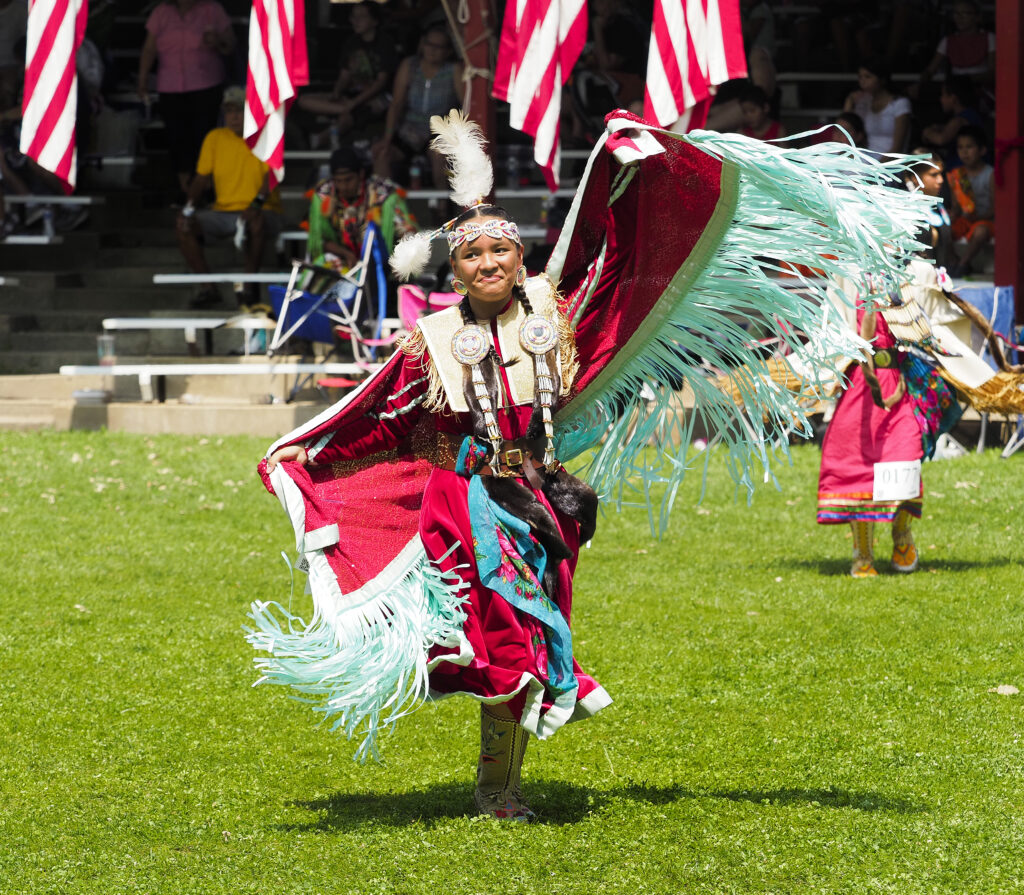
A rightful home
The Winnebago Reservation is unique because the tribe actually bought its own land, said Chamberlain, also the former vice chairman of the tribe.
Through the 1800s, the U.S. government forcibly moved the Winnebago Tribe five times, from its ancestral homeland in Wisconsin eventually to Nebraska. With each move, the tribe faced hardship, disease and death.
“If you ever look at the treaties, it’s really heartbreaking to see, every single one, they kind of reshuffle the deck and take something away,” said Victoria Kitcheyan, the tribe’s chairwoman.
Those removals came with compensation from the U.S. government, Kitcheyan said, which the tribe used to establish its permanent home in northeast Nebraska. The treaty promised the land would be “set apart for the occupation and future home of the Winnebago Indians, forever.”
Ancestors and relatives worked to make sure the tribe had a place to call home, Kitcheyan said, leaving them land to take care of with respect to Mother Nature and their creator.
“It’s those values that have carried over to these generations and made it so important that this land be returned to the tribe,” Kitcheyan said.
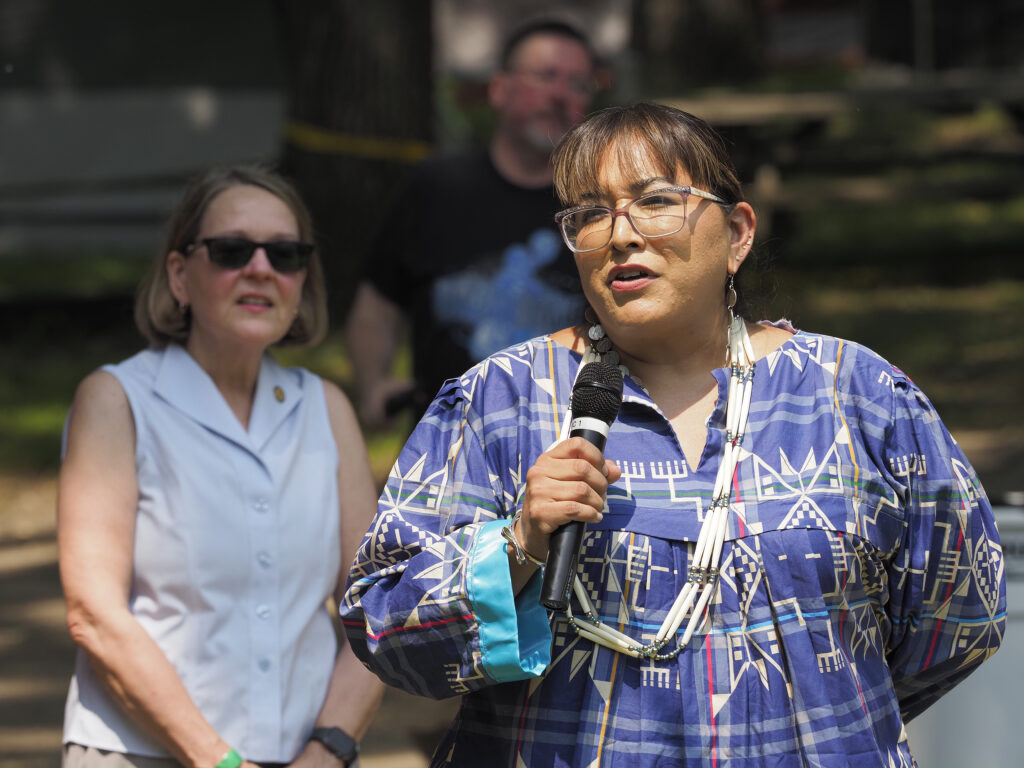
But in 1970, when the Winnebago learned that the Army Corps was seizing the tribe’s 1,600 acres, it only had one day to find a qualified and willing lawyer to defend it, LaRose told Kitcheyan and other tribal leaders.
The tribe did fight, escalating lawsuits through multiple courts in Nebraska and Iowa. In 1976, a federal Court of Appeals ruled that the Army Corps did not have authority to take the land.
But, the court also decided that it didn’t have the authority to give it back.
The tribe needed Congress to return its land. So it launched a legislative effort that would last nearly a half-century.
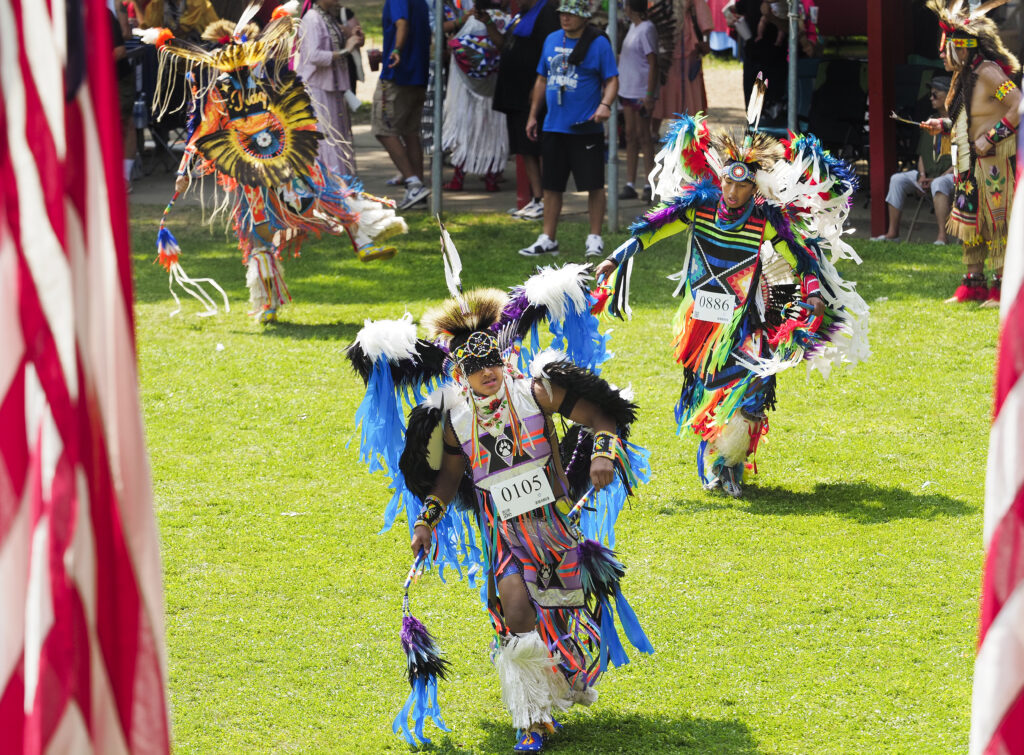
The right recipe
In the past seven years alone, Kitcheyan and the council have persisted through multiple iterations of the bill, trekking back and forth between Winnebago and Washington, D.C. to educate an ever-changing group of senators, representatives and staffers.
“Being able to articulate (the case) to our federal partners is half the battle, then to do it over and over again,” Kitcheyan said. “The education piece was the primary factor that I would say drove our success, telling our story over and over again.”
A bill would gain momentum and then fizzle as the politicians backing it left office, Chamberlain said. The issue only moved forward, he said, with the “tenacity and stick-to-it-ness” of the tribal council.
Finally, this year, the “recipe was right,” said Kitcheyan, the tribe’s chairwoman. Winnebago’s past advocacy and strong presence had positioned them to be recognized by legislators, she said.
LaRose had helped reinvigorate that land return effort when he won re-election to the council and told first-hand stories of the land seizure and court battles.
“Having that teaching, having the strength and values of our ancestors … we didn’t go there as ourselves, we went there as the nation of people,” Kitcheyan said, “knowing that I wasn’t there by myself and being reminded that the ancestors are always with us, it’s pretty deep.”

Rep. Randy Feenstra, an Iowa Republican, visited the seized land and agreed to bring the bill forward, Chamberlain said, with support from the rest of Iowa and Nebraska’s representatives. Rep. Sharice Davids, a Kansas Democrat and member of the Ho-Chunk Nation, a sister tribe to Winnebago, also supported the effort from the outset.
It took a bit of time, Chamberlain said, but Nebraska’s Sen. Deb Fischer and Sen. Pete Ricketts eventually climbed aboard, too.
The tribe celebrated every step of the bill’s winding journey as a victory.
LaRose went to Washington D.C. again last fall with his grandson, an attorney who works in D.C. now and helped with the effort, Kitcheyan said. She wanted to cry when LaRose, sick with Parkinson’s disease, said he knew it would be his last trip.
When she learned the bill would reach the Senate floor, Kitcheyan called LaRose to celebrate.
His ability to speak was gone, but his mind was still sharp.
On Nov. 7, just one day after Fischer introduced the bill in the Senate, LaRose died. He was 81.
“We thought he’d always be there, I thought we had more time,” Kitcheyan said. “He was so spry in other ways. I thought we had more time, but I think he knew his work was done. Our real responsibility is to finish it for him.”

And his work was done. The U.S. Senate unanimously passed the bill in June.
“Our bill becoming law corrects a decades-old wrong,” Sen. Fischer said in a statement. “Now, we can finally return this land to the Winnebago Tribe of Nebraska. I want to thank my colleagues for their unanimous support and the Winnebago Tribe for their persistence and dedication to their people.”
An impromptu celebration broke out in Winnebago that day, drummers and singers gathered to honor what had taken place, Kitcheyan said.
The tribe hopes to hold a larger celebration, now that Biden signed the bill into law, with all of the leaders from both political parties that joined in the effort.

Land back
The Winnebago Tribe isn’t the only tribe that lost land to the Army Corps of Engineers as it sought to build dams on the Missouri and Columbia rivers, said Cris Stainbrook, an Oglala Lakota and president of the Indian Land Tenure Foundation.
“What they’re finding too is (the Army Corps) took more than they actually ended up using, which is the classic case,” Stainbrook said.
Now that the Winnebago land transfer has passed, Stainbrook said, there’s potential for those other tribes to harness that political momentum and get their land returned, too.
By persistently pushing over time, Stainbrook said, he’s seen tribes get enough people in D.C. to acknowledge that a land seizure wasn’t appropriate – that something had to change.
Winnebago’s success coincided with a broader attitude shift around Native issues, Kitcheyan said.
“I call it an awakening, but it’s like this in Native culture, we’re more visible, we see ourselves in fashion, we see ourselves in comics and movies,” Kitcheyan said. “So we’re not like these stereotypical renditions of our people that were in mass media.”
Reclaiming land is part of reclaiming those stories, Kitcheyan said. Winnebago getting land back from the U.S. government is healing for the tribe.
“To put those words, to put that mass messaging to work, it’s like, hell yeah, land back, hashtag Land Back,” Kitcheyan said. “During this kind of movement, it’s just appropriate that we would have success.”
In total, the Winnebago Tribe lost more than 75% of its roughly 120,000 acres of treaty land through a century of U.S. government policies.
Recently Winnebago, along with two other Nebraska tribes, has also invested in buying back agricultural land, spending far more per acre than average to reclaim what was once theirs.
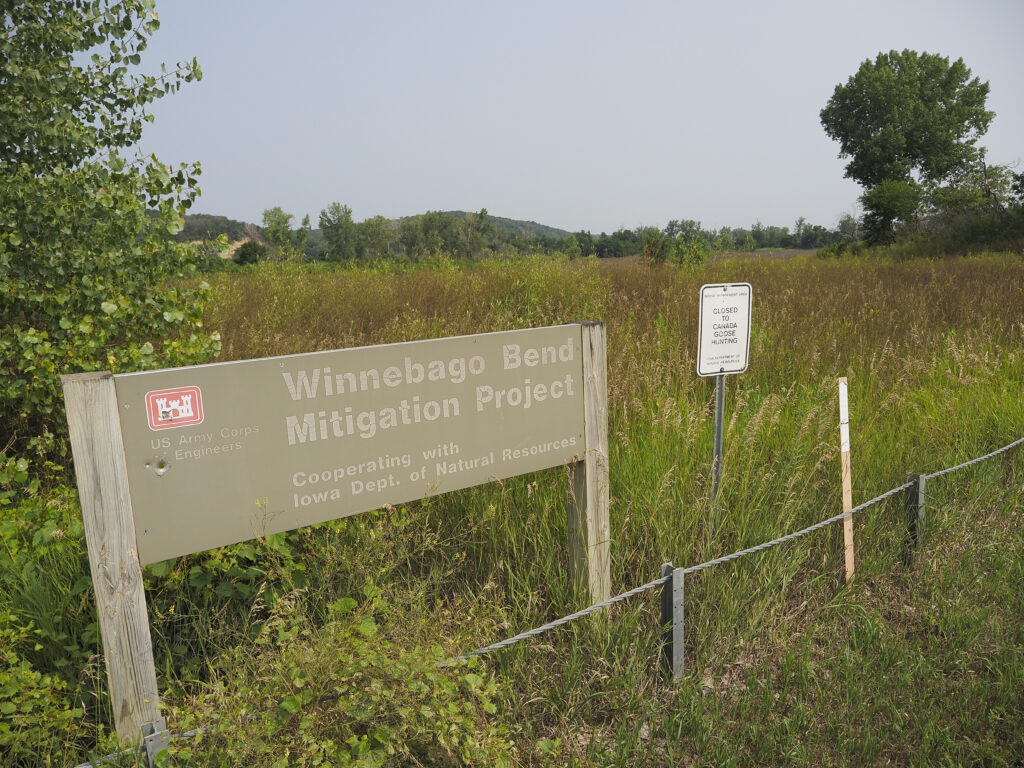
This newest land reclamation, about 1,600 acres along the Iowa side of the Missouri River, will be used for conservation. The wooded land runs directly along the river and floods during heavy rain. The Winnebago Land Transfer Act prohibits the tribe from using the land for a casino, but the tribe wouldn’t develop it that way, anyway, Chamberlain said.
“If you guys saw the land, it’s a no brainer, it’s literally not made for that,” Chamberlain said.
The transfer faced some pushback from residents of the area who used the land to hunt and fish, Chamberlain said, but the tribe will hand out permits through its own Wildlife and Parks Department.
When the Iowa Department of Natural Resources renewed its agreement to manage the land, over 20 years ago, the tribe’s legal team had asked for a “brilliant” provision that if the land was returned to the tribe, the DNR’s management would end, Kitcheyan said.
That provision saves the tribe a step now, Kitcheyan said, as the land transfers to the Department of Interior to be held in trust, once again, for the tribe.
“We were persistent. We never went away,” Kitcheyan said. “Some of our tribal leaders said ‘the Winnebago, they never give up.’ And I could say I’ve seen this, it’s known to be true.”

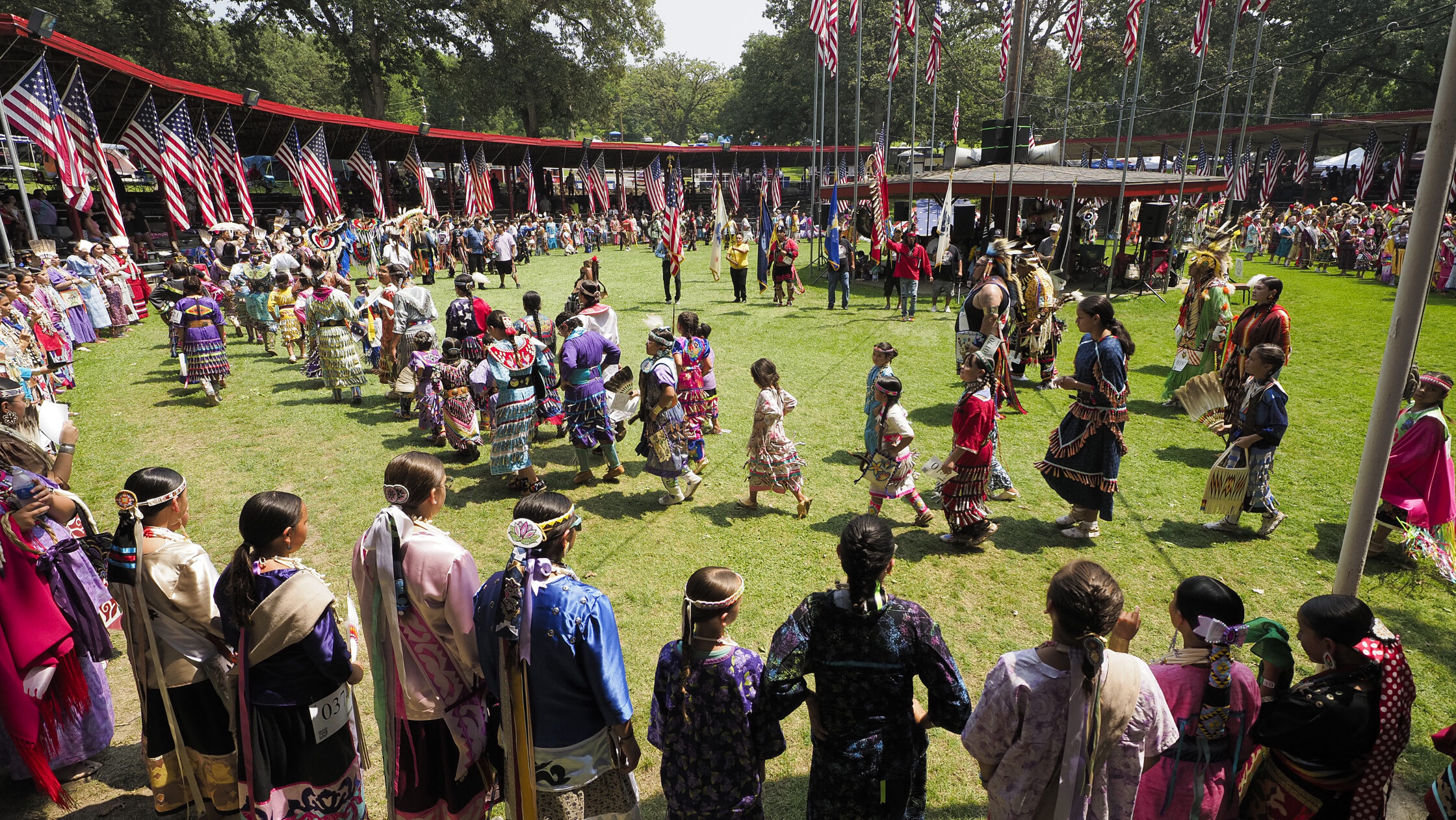

4 Comments
I am delighted that our US Congress did something right by the Indigenous Peoples in returning land wrongfully taken from them…BUT…it is ABSURD that it took 50 years and an act of CONGRESS to return it to them when it was taken by the Army Corps of Engineers in eminent domain. In addition to getting the land back, the Army Corps of Engineers should have to pay the legal and travel fees for tribe litigation around the case for the last 50 years!
GODis so good.
Great read…thanks for your dedication to bring this information to others. I am so pleased that the Winnebago Nation was able to get their land back. Again a million thanks…
Great article regarding the Winnebago tribe getting land back. It is unfortunate and very wrong that the wheels of justice grind so slowly. There is way too much of that today. It flies against the foundational principles of our country. – liberty and justice for all. Injustice has been more pronounced with the Native Americans, however our justice system is so broken that the 2020 election rioters, instigators, enablers and miscreants still have not had their cases resolved. Only this last week was justice delivered in a 2020 election process tampering case in Colorado. Like with the Winnebago tribe losing their land five times, failure to promptly deliver justice means that the ill wind will blow again and probably sooner than later.